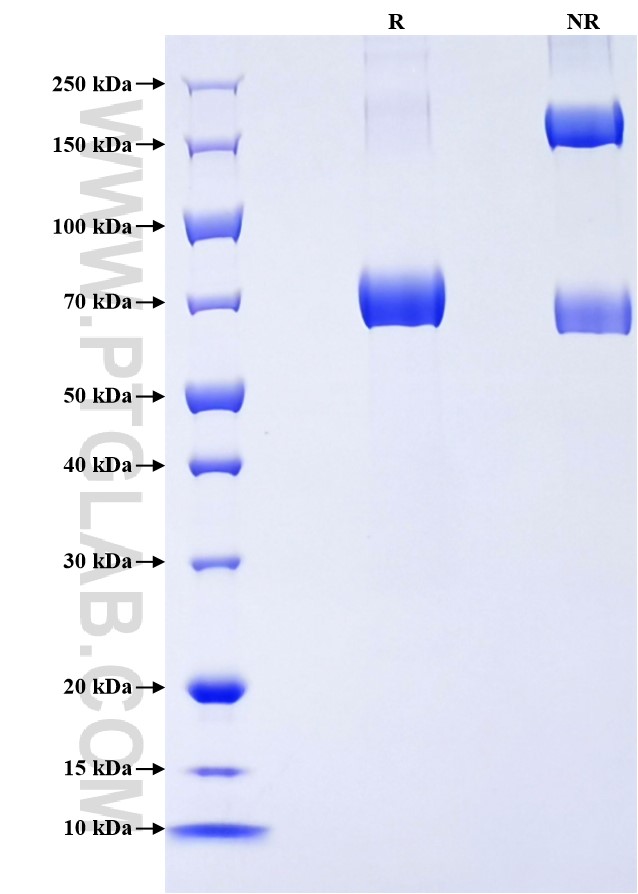Recombinant Human Lumican protein (rFc Tag)
种属
Human
纯度
>90 %, SDS-PAGE
标签
rFc Tag
生物活性
未测试
验证数据展示
产品信息
| 纯度 | >90 %, SDS-PAGE |
| 内毒素 | <0.1 EU/μg protein, LAL method |
| 生物活性 |
Not tested |
| 来源 | HEK293-derived Human Lumican protein Gln19-Asn338 (Accession# P51884) with a rabbit IgG Fc tag at the C-terminus. |
| 基因ID | 4060 |
| 蛋白编号 | P51884 |
| 预测分子量 | 62.7 kDa |
| SDS-PAGE | 65-80 kDa, reducing (R) conditions |
| 组分 | Lyophilized from 0.22 μm filtered solution in PBS, pH 7.4. Normally 5% trehalose and 5% mannitol are added as protectants before lyophilization. |
| 复溶 | Briefly centrifuge the tube before opening. Reconstitute at 0.1-0.5 mg/mL in sterile water. |
| 储存条件 |
It is recommended that the protein be aliquoted for optimal storage. Avoid repeated freeze-thaw cycles.
|
| 运输条件 | The product is shipped at ambient temperature. Upon receipt, store it immediately at the recommended temperature. |
背景信息
Lumican (LUM), a member of the small leucine-rich proteoglycan (SLRP) family, is one of the major extracellular components in interstitial collagenous matrices of the corneal stroma, aorta, skin, skeletal muscle, lung, kidney, bone, cartilage, and intervertebral discs. SLRPs constitute an important fraction of noncollagenous extracellular matrix proteins and have important effects on cell behavior. Lumican regulates collagenous matrix assembly as a keratan sulfate proteoglycan in the cornea and may exist as a glycoprotein in the connective tissues of other organs. Posttranslational modifications lumican goes through can increase its apparent molecular weight to 50-90 kDa. Studies show that lumican participates in the maintenance of tissue homeostasis and modulates cellular functions including cell proliferation, migration, and differentiation.
参考文献:
1. Nikitovic D. et al. (2008) IUBMB Life. 60(12):818-23. 2. Liu CY. et al. (2012) Methods Mol Biol. 836:285-90. 3. Dolhnikoff M. et al. (1998) Am J Respir Cell Mol Biol. 19(4):582-7. 4. Yang CH. et al. (2012) Vet J. 193(2):374-80.
